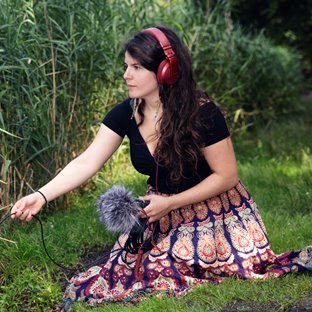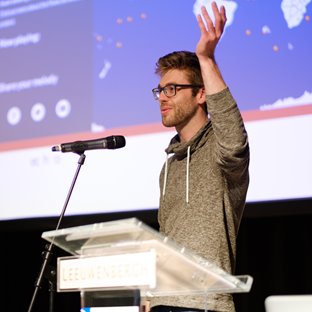HKU kent verschillende collegegeldtarieven: wettelijk en instellingscollegegeld. Afhankelijk van jouw situatie betaal je wettelijk of instellingscollegegeld.
Wil je weten wat je straks moet betalen? Raadpleeg onze
Collegegeldwizard!
Waar moet mijn laptop en software aan voldoen?
Voor je toelating geldt:
HKU Muziek en Technlogie geeft bewust geen tips over te gebruiken software en hardware in aanloop naar de toelating, het is namelijk niet relevant waar een kandidaat mee werkt. Het belangrijkst is dat een kandidaat bij de toelating laat zien dat hij/zij met de voor die persoon beschikbare technologische middelen tot creatief muzikaal werk is gekomen en dat de kandidaat daarbij het een en ander kan vertellen over de afwegingen bij het maken van dat werk. Deze technologische middelen kunnen zeer uiteenlopend van aard zijn, van oude taperecorders, analoge mengtafels en 4 sporen cassettedecks, tot hedendaagse software zoals MaxMSP, Logic, Protools, Cubase, FL studio en Ableton, en van hardware zoals AKAI MPC's, tot gratis open source software zoals PureData, Ardour en Audacity.
Bij de toelating is het hebben van vaardigheid in de specifieke DAW's die tijdens de studie gebruikt worden geen criterium. Bij de toelating is het hebben van vaardigheid in willekeurig welke DAW wel een pluspunt.
Voor studenten geldt:
M&T stelt bewust geen specifieke soft- en hardware verplicht tijdens de studie. Hoewel het in principe mogelijk is de studie te volgen zonder eigen soft- en hardware, maken veel studenten gebruik van een eigen laptop met software, zowel Windows, MacOS als Linux. Over het algemeen bepalen studenten zelf tijdens de eerste periode van de master wat voor hen de meest geschikte setup is, op basis van advies en informatie van medestudenten en docenten.
Aanvullende vragen?
Neem contact op met HKU Servicebalie Studentzaken:
T: 030-2091540
E: sz@hku.nl

